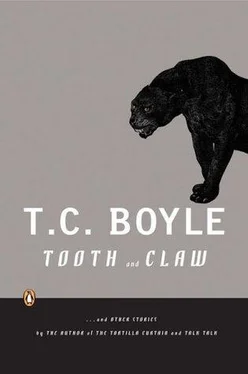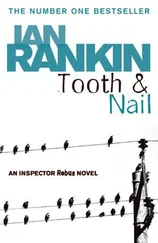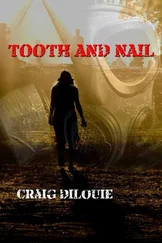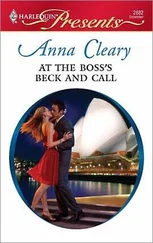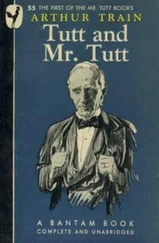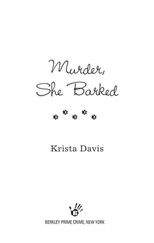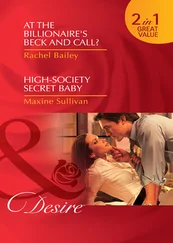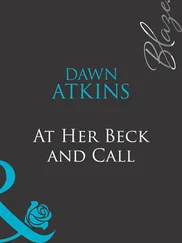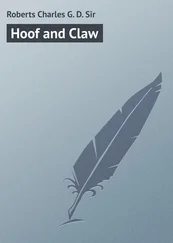It was just after Christmas — or maybe after New Year’s, because school had started up again — when a cold front came down out of Hudson Bay and froze everything so thoroughly nobody could stand to be out of doors more than five minutes at a time. The birds huddled under the eaves of the tavern, looking distressed; the squirrels hung like ornaments in the stripped trees. Everybody in the family drank hot tea thick with honey and the oily residue of the bitter lemon juice that came out of the plastic squeeze bottle, and that was the only time their hands seemed to warm up. When they went outside, the bare ground crackled underfoot as if it were crusted with snow, and for a few days there none of the converted cabins had water because the lines from the well had frozen underground. Jimmy’s brother, though he had a cough that wouldn’t go away, had to take a pail across the road to the pond and break the ice to get water for the stove.
He remembered his father, wizened forearms propped up on the bar in a stained khaki parka he’d worn in Korea, a sheaf of hair canted the wrong way because it hadn’t seen a comb in days, the smoke of his cigarette fuming in the dark forge of the bar. And his mother, happiest woman in the world, laughing at anything, laughing till all the glasses were drained and the lights went out and the big-bellied bartender with the caved-in face shooed them out the door and locked the place up for the night. It was cold. The space heater did nothing, less than nothing, and Jimmy’s brother could have earned his merit badge as a fire-starter that winter because all he did was comb the skeletal forest for fallen branches, rotten stumps and fence posts, anything that would burn, managing to keep at least a continuous smolder going day and night. And then he got up for school one morning and there was an old woman — or a woman his mother’s age, anyway — laid out snoring on the couch in front of the fireplace where the dog used to sleep. He went into his parents’ room and shook his mother awake. “There’s somebody sleeping out there on the couch,” he told her, and watched her gather her features together and assess the day. He had to repeat himself twice, the smell of her, of her warmth and the warmth of his father beside her, rising up to him with a sweet-sick odor of sex and infirmity, and then she murmured through her cracked lips, “Oh, that’s only Grace. You know Grace — from the tavern? Her car won’t start, that’s all. Be a good boy, huh, and don’t wake her?”
He didn’t wake her. He got his brothers and sister out of bed, then huddled with them at the bus stop in the dark, jumping from foot to foot to keep warm and imagining himself on a polar expedition with Amundsen, sled dogs howling at the stars and the ice plates shifting like dominoes beneath their worn and bleeding paws. There was a pot on the stove when he got home from school, some sort of incarnadine stew with a smell of the exotic spices his mother never used — mace, cloves, fennel — and he thought of Grace, with her scraggle of gray-black hair and her face that was like a dried-up field plowed in both directions. He tasted it — they all sampled it, just to see if it was going to be worth eating — and somehow it even managed to taste of Grace, though how could anybody know what Grace tasted like unless they were a cannibal?
His parents weren’t at home. They were three hundred feet away, in the tavern, with Grace and the rest of their good-time buddies. A few dispirited snowflakes sifted down out of the sky. He made himself a sandwich of peanut butter and sliced banana, then went into the tavern to see if his parents or anybody else there was in that phase of rhapsodic drunkenness where they gave up their loose change as if they were philanthropists rolling down Park Avenue in an open Rolls-Royce. One guy, hearty, younger than the rest, in a pair of galoshes with the buckles torn off, gave him a fifty-cent piece, and then his father told him to get the hell out of the bar and stay out till he was of legal age or he’d kick his ass for him but good.
The next morning was even colder, and Jimmy’s brother was up early, shivering despite the rancid warmth generated by his three brothers and the cheap sleeping bag advertised for comfort even at five below zero, which might as well have been made of shredded newspaper for all the good it did. He put the kettle on to boil so they could have hot tea and instant oatmeal to fortify them out there in the wind while they were waiting for the school bus to come shunting down the hill with its headlights reduced to vestigial eyes and the driver propped up behind the black windshield like a blind cavefish given human form. The house was dark but for the overhead light in the kitchen. There was no sound anywhere, nothing from his parents or his brothers and sister, everybody locked in a sleep that was like a spell in a fairy tale, and he missed the dog then, if only to see it stretch and yawn and nose around in its dish. The kettle came to a boil and he’d actually put three tea bags in the pot and begun pouring the water before he realized that something was wrong. What was it? He strained his ears but there was nothing to hear. Not even the tick of the stove or the creak and whine of the house settling into the cold, no sound of stirring birds or tires revolving on the blacktop road. It was then that he thought to check the time.
There was a clock built into the stove, foreshortened hands painted gold behind a greased-over plastic lens. It read 3:35 A.M. Jimmy’s brother could have kicked himself. He sat in the kitchen, shivering, and had a cup of tea, wishing it would snow so they’d call off school and he could sleep all day. After a while he decided to build up the fire in the living room and sit there on the couch and terrify himself with Dracula —he was halfway through, though he’d started it at Halloween — and then maybe he’d drift off for a while till it was time to get up. He shrugged into his coat and went to the kitchen door, thinking of the punky wood he and Jimmy had stacked in the shed over the weekend.
But then — and I was ahead of him here, because you’d have to be as blind as a cavefish yourself not to see where this was going — the storm door wouldn’t give. There was something there, an immovable shadow stretched long and dark across the doorstep, and it took everything the brother had to wedge the door open enough to squeeze out into the night. And when he did pull himself out into the cold, and the killing, antipathetic breath of it hit him full in the face, he willed the shadow at his feet to take shape until he could distinguish the human form there, with her dried-out skin and fixed eyes and the dirty scraggle of gray-black hair.
“Grace?” I said.
Jimmy’s brother nodded.
“Jesus,” I said. “And your brother — did he see her there?”
He shrugged. “I don’t know. I don’t remember. She was a drunk, that was all, just another drunk.”
WE SAT FOR A MOMENT, looking past our drinks to the marina and the black unbroken plane of the sea beyond it. I had an impulse to open up to him, to tell him my story, or one of my stories, as if we were clasping hands at an AA meeting, but I didn’t. I made a clucking sound, meant to signify sympathy and understanding, threw some money on the bar and went out the door, feeling for my keys. What I didn’t tell him, though he might have known it himself, was that Jimmy had put his son in a crematory box at the hospital and he put the box in the back of his Suburban and drove it home and into the garage, and all night, while his wife lay stiff and sedated in the big queen-sized bed upstairs, Jimmy hugged the coffin to him. I didn’t tell him that life is a struggle against weakness, fought not in the brain or in the will but in the cells, in the enzymes, in the key the DNA inserts into the tumbler of our personalities. And I didn’t tell him that I had a son myself, just like Jimmy, though I didn’t see him as much as I would have wanted to, not anymore.
Читать дальше
